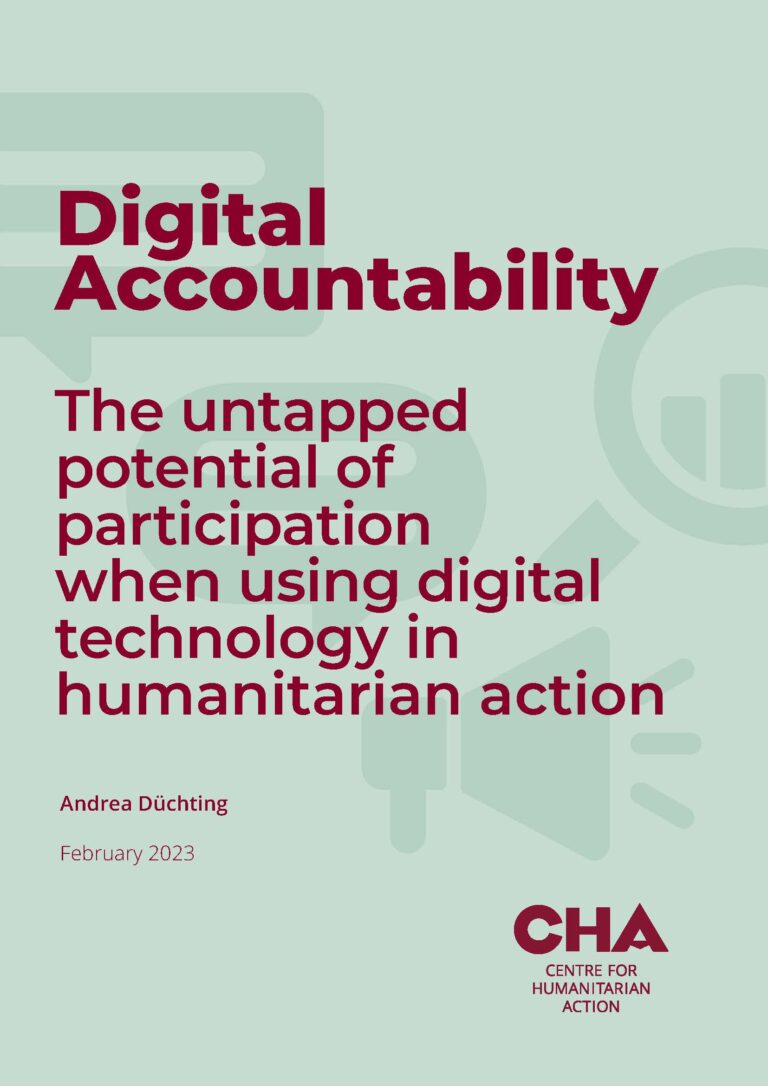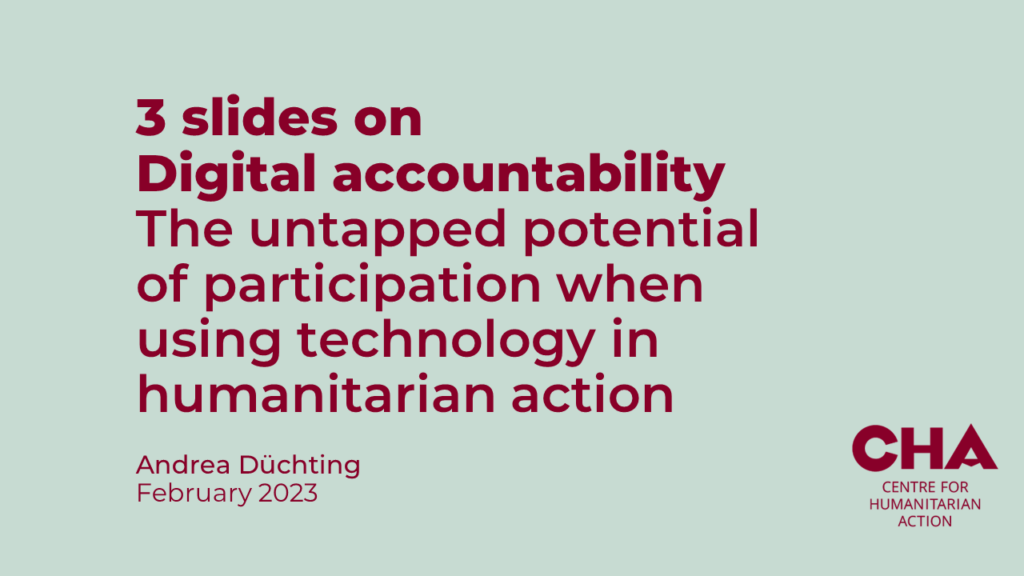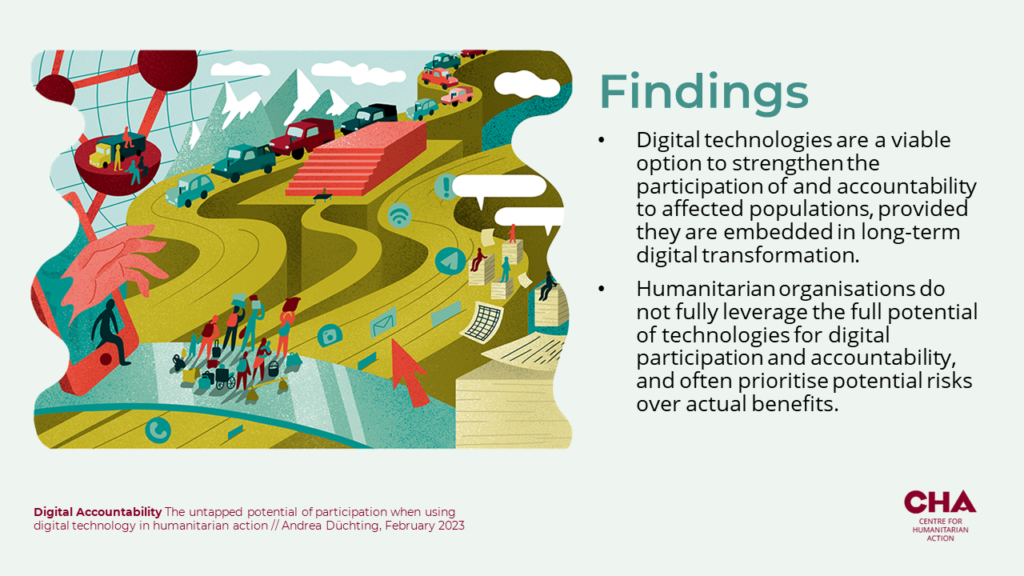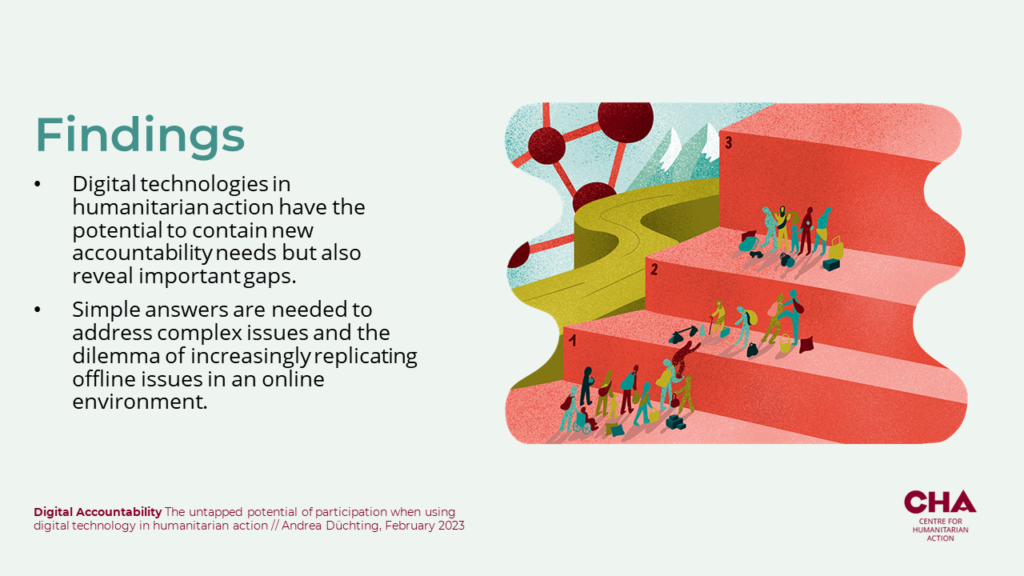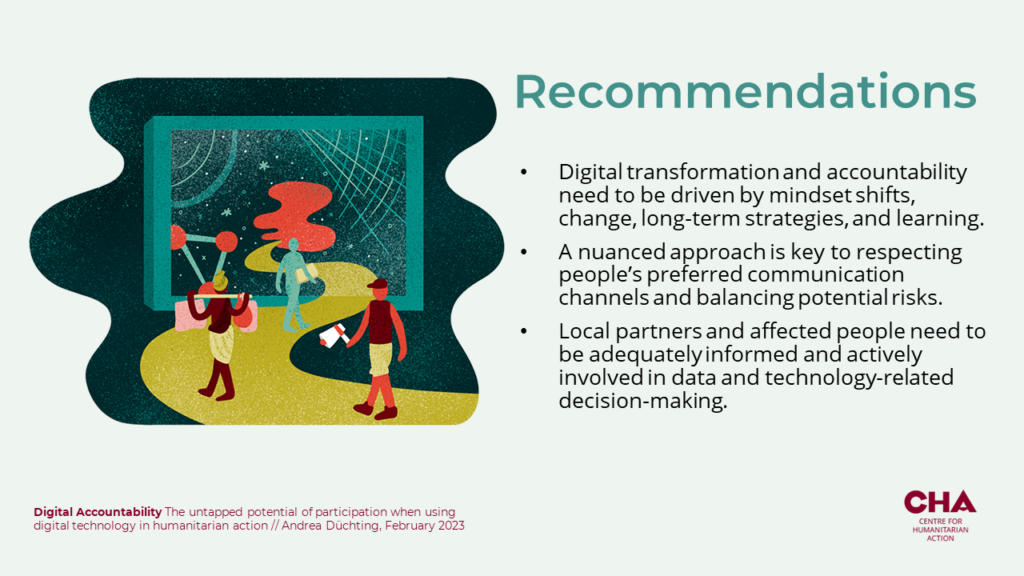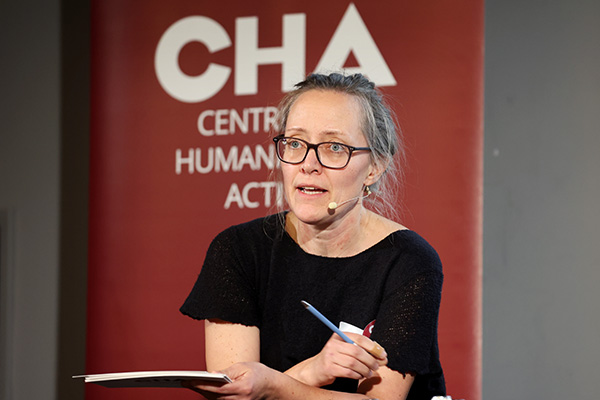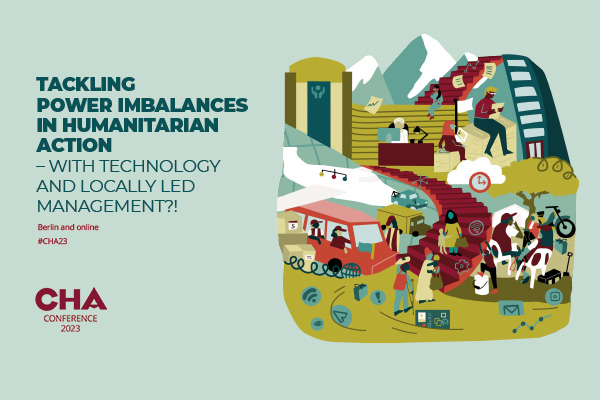| Author: | Andrea Düchting |
| Date: | 23.02.2023 |
| Downloads: |
Paper (EN)
Accessible Version (EN) Executive Summary (DE) Executive Summary (EN) Executive Summary (FR) |
In recent decades, the use of digital technologies has grown massively, also in the humanitarian sector. The sheer amount of data has increased exponentially. Information, whether true or false, spreads at high speed and in real time. At the same time, the gap between humanitarian needs and funding is getting larger. Humanitarian action needs to be more efficient and effective while coordination and accountability need to be strengthened. Digital tools have become indispensable in this regard. As a result, many humanitarian organisations are digitising and digitalising their processes; however, only a few are using this as an opportunity to digitally transform their entire business model and involve local actors and stakeholders.
CHA Fellow Andrea Düchting examines the tension between digital technologies, participation, and accountability. She explores their interlinkages, benefits, and challenges. And she analyses the ways in which humanitarian actors hold themselves responsible and accountable when using digital technologies and shows ways in which affected people can hold organisations to account.
Take Aways:
This paper is a result of the project component Enhancing digital literacy: Identifying the opportunities and limitations of digitalisation, which is part of the project “Strengthening the Programme and Policy Relevant
Capabilities of Humanitarian Actors in Germany” (SPreAD), funded by the German Federal Foreign Office.


